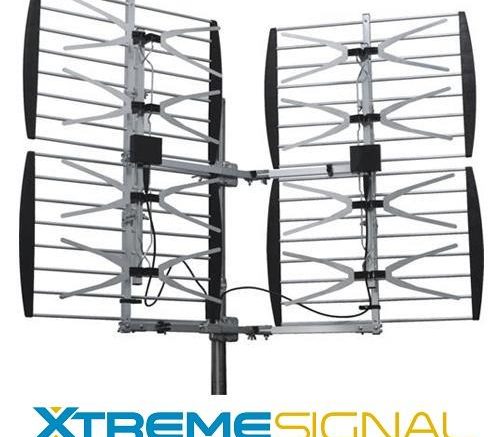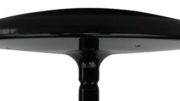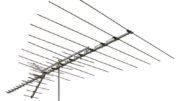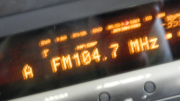Sort of depends on what kind of antenna, and a whole lot of other things.
It’s pretty unlikely
First of all, put your fears to rest because a properly installed, maintained, and grounded antenna will not short out in the rain. It also won’t pose a risk from lightning. However, an older amplified antenna could very conceivably short out.
The nitty gritty
An antenna is a way to conduct electricity; that’s its very reason for existing, because radio waves are nothing more than electromagnetic energy at a very weak level. A regular antenna does conduct that electricity but it doesn’t carry a current of its own, therefore there is nothing in the antenna itself to short out.
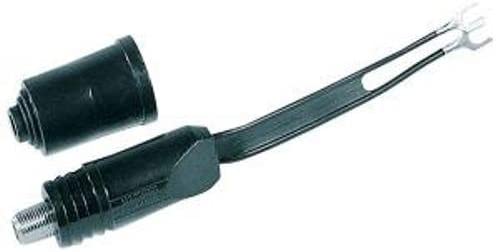
However, every antenna made today has a balun which converts the impedance of the signal from 300 ohms to 75 ohms so it can travel efficiently through coaxial cable. This balun is generally a weatherproof part, but if it gets old it can get exposed to the elements. Look for a plastic box near where the cable connects to the antenna. You should be able to look at it and determine if water has the ability to get at electronic components.
Amplified antennas
In the case of an amplified antenna, there is power coming up the cable and into an amplifier built-in or placed near the antenna. Again, these devices are intended to be weatherproof, but time, water and UV rays can weaken the plastic outer coverings. Your amplifier does have the potential for shorting out in the rain and should be inspected every year along with anything else you have outside.
Rotators
A rotator is a device which will point your antenna in a different direction. People who are very far away from more than one city will sometimes use one to try to get reception from two different directions at two different times. This can really help with distant signals, but it can be a problem if you are using more than one TV at the same time. Your antenna won’t see all the channels you get all the time and this can make it hard to watch different shows in different cities at the same time.
If you have a rotator, there is definitely a potential for a short circuit if the plastic housing is cracked or in poor condition. Rotators are simply high-strength electric motors and there is a real possibility that water getting where it shouldn’t will shorten their lives considerably. You should make sure there’s no possibility that water could get into the rotator mechanism or even pool anywhere around it.
Inspecting your antenna
It doesn’t take a lot to inspect an antenna or its accessories for signs of wear. You’re looking for cracks or loose spots, places where water could get in. It’s also a good idea to rub your finger briskly against any plastic parts to see if they are oxidizing or turning to powder. This is a common occurrence in the southwest. If you see signs of mold, which is more common in the southeast, that’s a sure sign that there’s enough water to create problems, but don’t confuse the black oxide finish that forms on aluminum antennas with mold. The oxidation of an antenna doesn’t have any negative effect on its efficiency.
Remember to be careful when you go up on the roof to look at that antenna! It’s a good idea to bring your phone with you and have a person on the ground who is watching you. Be sure to take every possible precaution. Above all, wait until the bad weather is over before you go up on that roof.
It it’s beyond repair
Antennas are usually very durable but everything wears out eventually. You may be dealing with an antenna that’s 50 years old or older, or simply a low-priced antenna from the last decade. If you’re ready to replace or upgrade your antenna, check out the great selection at Solid Signal. If you’re not sure which antenna to buy, get a recommendation from a technician by filling out this simple form.

